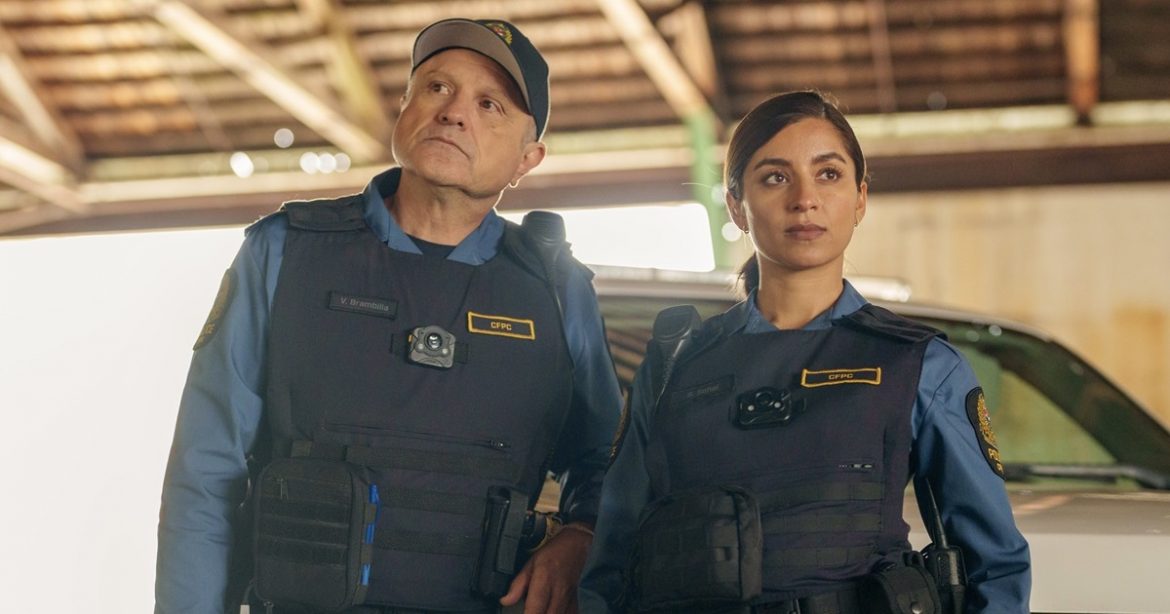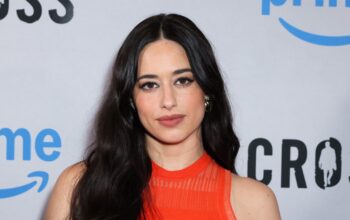[Warning: General spoilers ahead.]
At the other end of the tone spectrum from CBC and CBC Gem’s new series, Wild Cards (previewed here), the network and companion streamer are set to launch Allegiance on Wednesday. Also set in Vancouver, or, more specifically, Surrey, the new drama takes a much more serious POV on policing in the modern era amid growing societal restlessness and racial tensions and ongoing distrust in the system ostensibly designed to keep us safe.
The focus of the series is newly minted police officer Sabrina Sohal (Supinder Wraich), who’s fought an uphill battle to wear the uniform because of presumed favoritism due to her father, Ajeet’s (Stephen Lobo), political standing. When that presumption takes a very unexpected 180-degree turn, she’s battling an entirely different tangential perception.
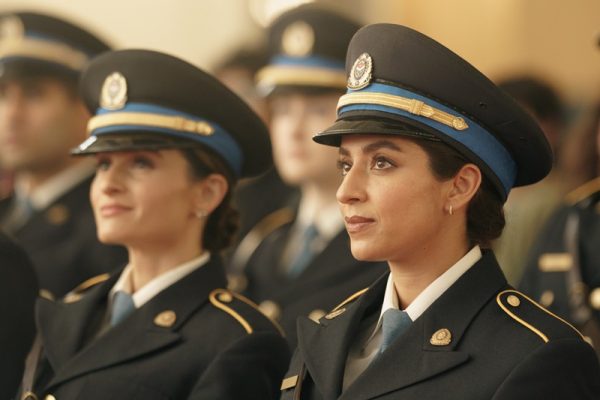
Paired with training officer Vince (Enrico Colantoni), who’s old school to a degree (but not closed-minded) and days away from his retirement, Sabrina begins covering a beat that sometimes works for and against her. Along the way, she and Vince find a way to learn from and teach each other.
The series also includes a who’s who of familiar Vancouver and Canadian television talent spanning the Chris Haddockverse, Continuum, Virgin River, Hallmark, and more, including:
- Brian Markinson as the Sohal family attorney Max
- Adolyn H. Dar as Ishaan, Sabrina’s brother
- David Cubitt as Sabrina’s superintendent, Eli
- Crystal Balint as an elite inspector, Kara
- Toby Levins as Doug, a completely different kind of training officer
- Melanie Papalia as Sabrina’s BFF and fellow rookie officer, Gillian
- Sonia Dhillon Tully as Parveen, Akeet’s chief of staff
- Andres Joseph as Nate, a crown attorney
- Lachlan Quarmby as Luke, Sabrina’s classmate, colleague, and frenemy
- Jake Foy as Ishaan’s boyfriend. Kyle
- Vincent Gale as Assistant Commissioner Campbell
The creative team includes series creator Anar Ali (Transplant), X Company and Flashpoint‘s Mark Ellis and Stephanie Morgenstern, who showrun, Sight Unseen‘s Agam Darshi, who directs and is a producer and story editor; Cardinal alumni Aubrey Nealon, Sarah Dodd, and Penny Gummerson; Coroner‘s Seneca Aaron, Abdul Malik (Transplant), and Manny Mahal (Our Big Punjabi Family). In addition to Darshi, directors across the first season of ten episodes include David Frazee, Shannon Kohli, Nimisha Mukerji, and Madison Thomas.
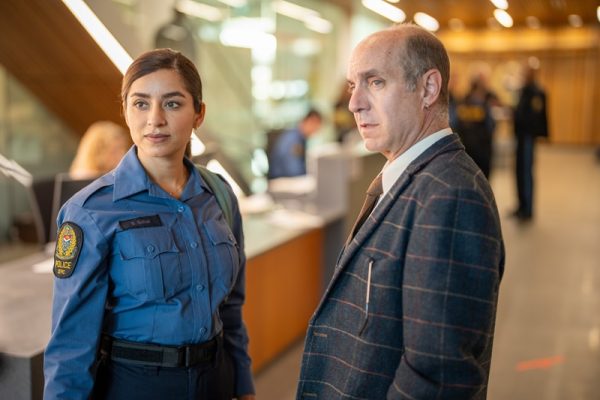
I recently joined the press day for the series, and here’s what series creator Ali, co-showrunner Ellis, and stars Wraich and Colantoni shared about what we’ll see this season.
As the architect of Flashpoint, which ran five seasons from 2008 to 2012, Ellis drew a contrast between the world of that earlier show, set among a crisis-intervening SWAT team in Toronto, and Allegiance.
“Flashpoint was about a group of cops that carried big, huge, ugly weapons around with them everywhere, and they were trained to use them. And almost every episode you saw somebody looking down the barrel of one of them,” he recalls.
“But I think you can probably count on one hand the number of times that they fired those guns. So, for Stephanie Morgenstern and myself, we’ve both gravitated towards shows that embody compassion and empathy and having to make difficult decisions and walk fine lines between what is right and what is necessary.”
“That being said, I don’t think you could make Flashpoint today, and I don’t think it should be made in this day and age. Somebody else has come up with these words, but I think it’s right. They tend to be science fiction in some kind of way. We have, through a lot of television history over idealized what policing looks like. I don’t think Allegiance does that.”
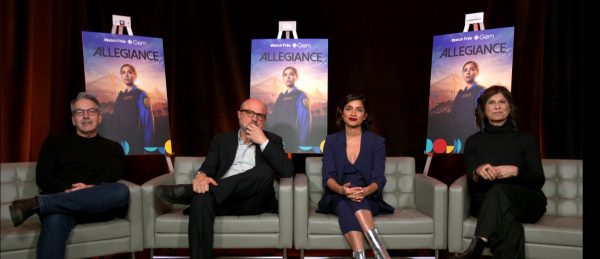
“I think it shows us what policing can be through these two characters who have an ability to connect with people who have a strong sense of the community they come from, who have a sense of compassion for each other and for the people they come across.”
“But this is a show that really shows us the limits of the legal system and the justice system, the inequity, the unfairness that exists.”
“And so how does a young rookie police officer like Sabrina, beautifully played by Supinder, navigate that system? What happens to her sense of idealism? What’s it like for Vince as played by Enrico, who is at the end of his career, who’s been battering himself against the wall of trying to do right, and is seeing the limits of what he can do?”
“I think Allegiance doesn’t offer a tidy answer in every episode in the way that Flashpoint sometimes did. It leaves us with questions and sometimes frustration with what we face in our policing system, but it also offers some hope that there are maybe some different ways that we could approach things. That there are things like compassion clubs for safe drug use, healing circles that could be employed if we find the ways to do it.”
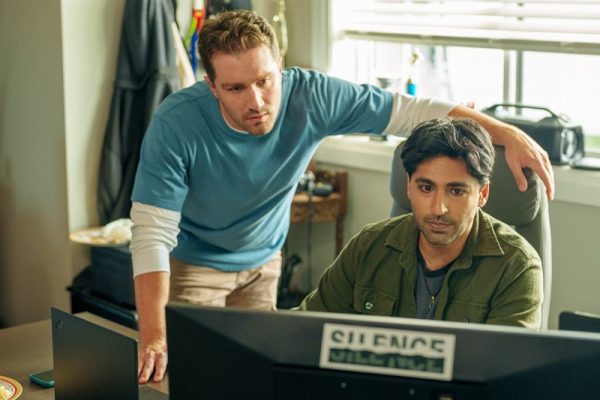
Series creator and executive producer Anar Ali was excited to frame the show’s procedural narrative with the unique point of view of a woman of color, for whom policing means many different things.
“In some ways our show is very much of today, but in some ways it’s also of always. There are many people for many years, generations, maybe, who’ve been dealing with police in a different way than many of us do. And so in many ways, it’s about shining a light on that,” she explains.
“And specifically when it comes to a woman of color who maybe has experienced various things in the body that she occupies as a woman and knowing what it is to, for instance, go out at night alone and what that means, versus also being a woman of color and what that means, so she’s occupying so many different places.”
“There’s a kind of understanding that she would have of what it feels like to be on the outside looking in, in the same ways some of the people that she’s policing have felt. Because a lot of times vulnerable communities haven’t been treated a certain way, not always, but often. And that’s what it’s kind of become at the mainstream.”
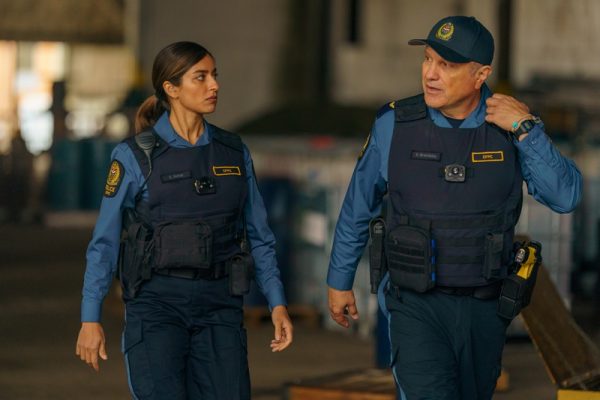
“But at the same time, I think what’s also interesting, and I think this is hopefully the conversation we get to have and are having, is that even though you could be a woman of color, you might have other privileges.”
“In the case of Sabrina, she’s a middle-class educated woman. So that means that she has a lot to learn, too, about her biases.”
“What’s interesting to me about that idea [is] first, I connect to that personally. And second of all, because we all have so much to learn, how do those ideas influence the justice system and the systems that we build? And one of the things that we talk about on our show is, ‘What is legal isn’t always fair.’ And that’s because who’s building the laws? Who’s building these things? Well, they’re seeing things from a certain perspective.”
“So what might be hopeful and beautiful is, ‘How do we actually get enough perspectives on the table that we can build a much more egalitarian space, that there’s more space for all of us?’ Which is also rooted in the culture, of Sikhism, this idea of equality and this idea of looking at each other not in a hierarchical way, which is kind of an older way of looking at things, but more, ‘How do we share and it?’ And it’s not easy to do that. Those are some of the things that we’re aiming for in the show.”
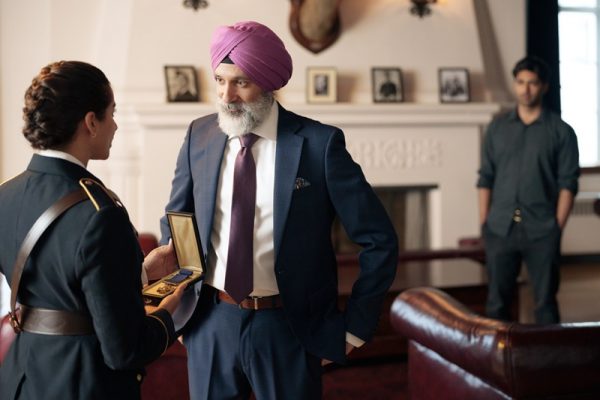
Supinder enjoyed the dichotomy of Sabrina balancing her family, her job, and the larger cultural issues that collide around her and being brave in the face of all them.
“At the beginning of the season and in that first episode, Sabrina’s world kind of just crashes in front of her. She thought she was gonna enter the police force in the light of everything her father had built in terms of his legacy,” she shares.
“And instead, she’s entering under his shadow and has to overcome [that], but also has to reassess what her belief system is. Because for so long, and this is addressed with her brother, she believes in the police force, she believes in the legal system, and then at the very beginning of the series, it fails her. So she comes into a police force that is mistrustful of her because of, inherently, the color of her skin, who her father is, all of these allegations.”
“Simultaneously, she is mistrustful of them because of the same circumstance. And I think throughout the season, we have these really interesting conversations. And what I love about Sabrina is that she confronts it. I think that’s the aspirational quality about watching this woman, because she’s brave. Under those circumstances, a lot of us can hide”
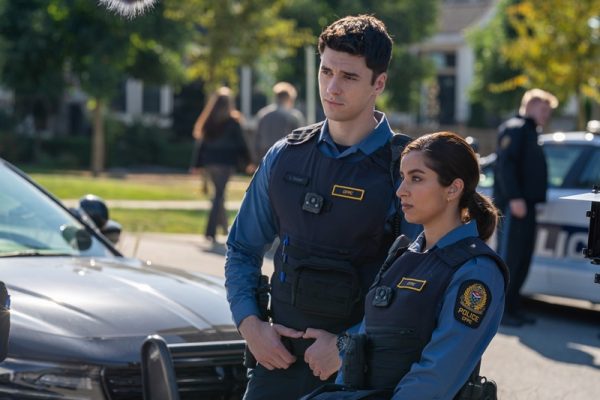
“I know that in my personal experience growing up as a brown woman in a predominantly white high school, being South Asian was the last thing I wanted to be. And so I would dye my hair and I would try to hide parts of myself.”
“But for Sabrina, she’s brave and she has these conversations. And when somebody says to her, ‘Well, it’s a good time to be you,’ she fires back and says, ‘You know what? I worked for what I got.’ Whether that’s true or not, she stands behind her beliefs and she has conversations with Vince. She says, ‘I wonder if you’ve noticed that I’m not white. I wonder if you’ve noticed these things that are happening around me.’”
“And I think the antidote to racism is a conversation. I think the more that we can talk to each other, hear both sides of the story and try to understand … that’s what I love about this character. And that’s also the way that I approached it as an actor in terms of [exploring], ‘What is she going through? What are the choices that she’s making?’ And there’s courage in all of her choices. And that’s fun to play.”
Fellow Flashpoint alumni Enrico Colantoni embraced playing the evolution of a character rooted in the past but open to change.
“I do think he does have enough bias that still allows him to represent the system, and otherwise there wouldn’t be the conflict that he has with Sabrina. But it’s not deep-rooted. It’s not black or white,” he says.
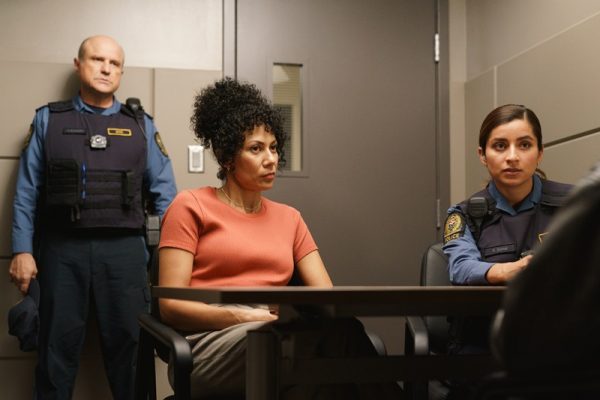
“She reminds him of why he did it in the first place. And we get that not all police officers will get that. There are other characters in the show that won’t get, that won’t understand that. But he’s a family man. He’s married to the force. He understands the love he has for the idea of policing. And here’s someone who touches him in a way that reinspires him, reignites that passion for policing. The only bias he had was that things [that used to work] are just not working anymore.”
“Flashpoint wouldn’t be made today because the world was different 10 and 12 years ago. The world is changing and Vince is maybe just a couple of steps behind the change, but not holding on to anything. It takes a lot of courage to say, ‘I can’t.’ When Wayne Gretzky retired, it was because he couldn’t keep up with the young guys. He could still be playing if he wanted to, but he knows what he’s capable of. So he stepped back and Vince Brilla is Wayne Gretzky.”
Allegiance premieres Wednesday, February 7th, streaming on CBC Gem and airing linearly at 9 pm on CBC. Here is a sneak peek.
